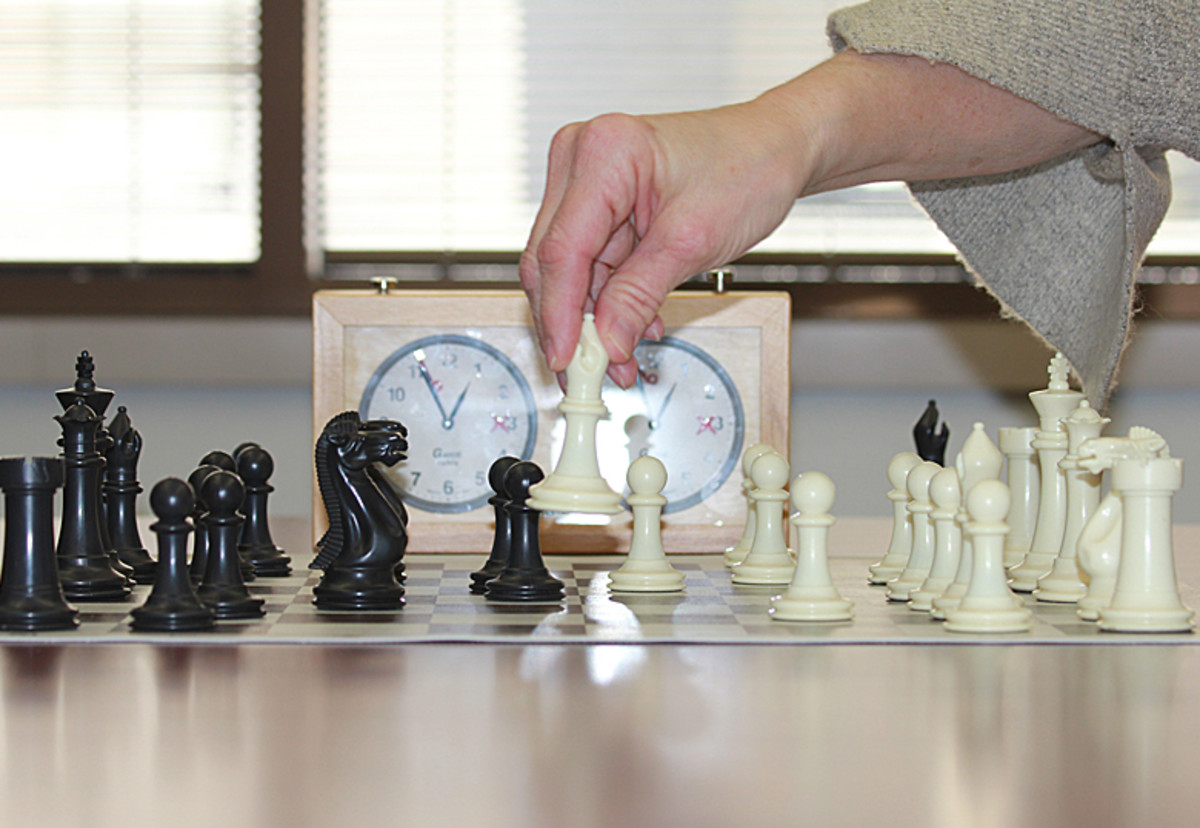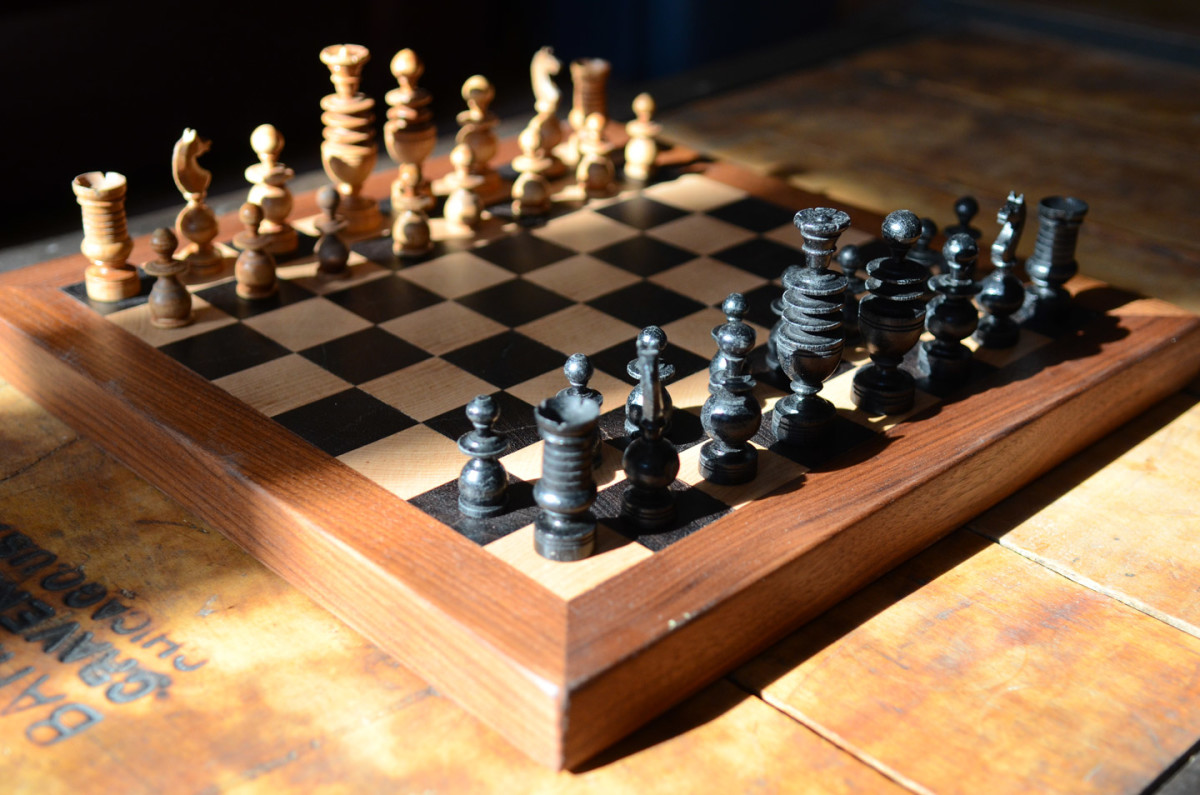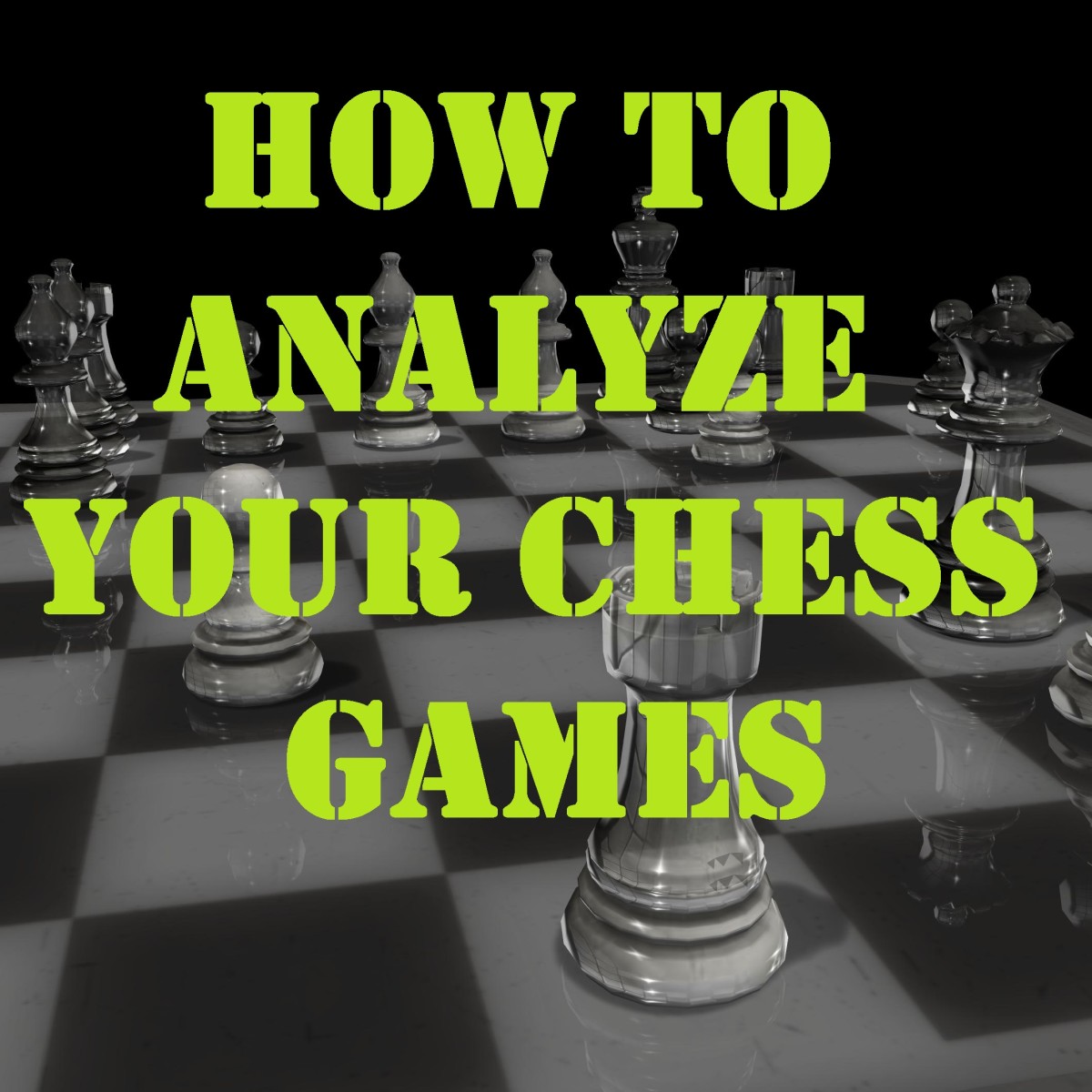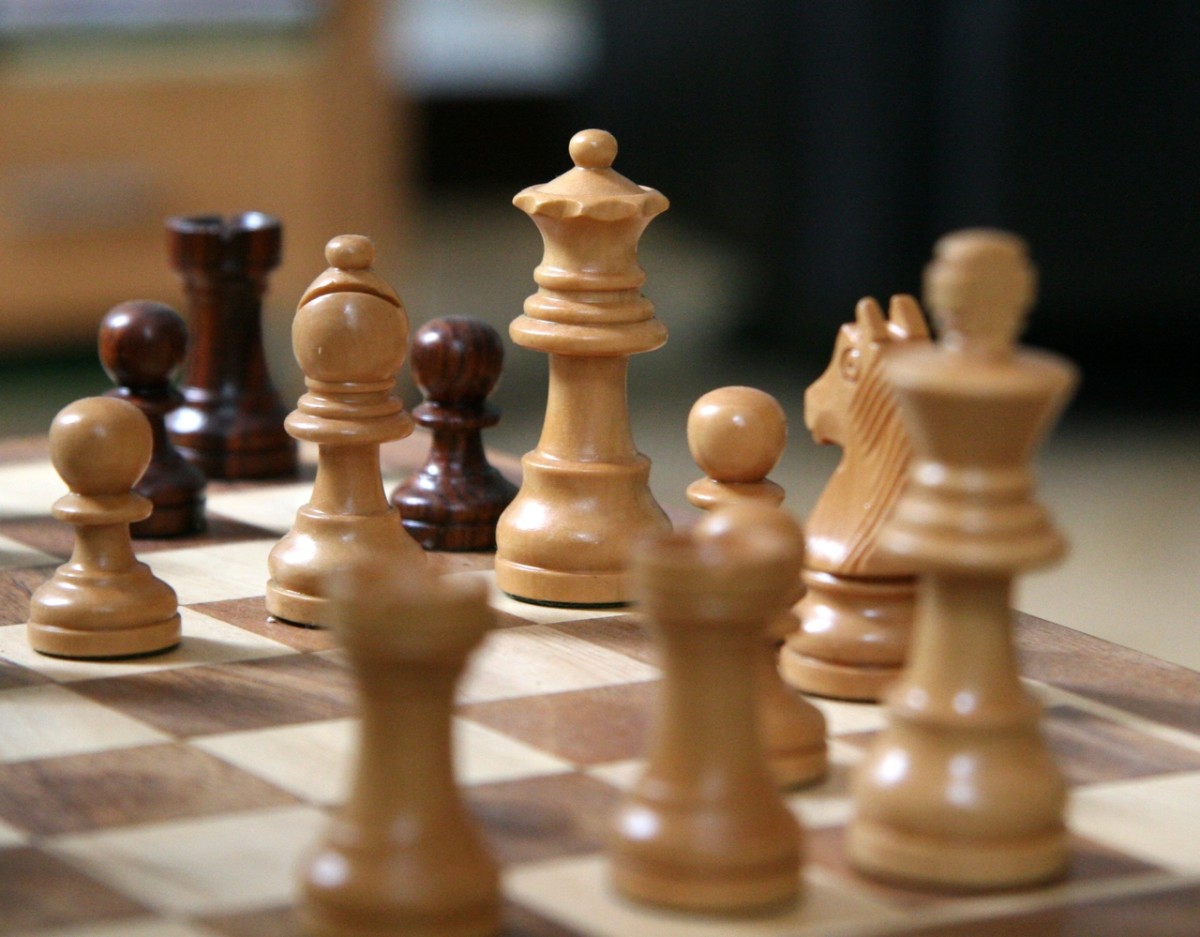How to Play Chess Extremely Well Like a Chess Grandmaster
How to Play Chess Like a Chess Grand Master
A grandmaster is an extremely good chess player usually in the top 0.02% of all chess players or found on average 1 in 5,000 regular and active chess players. In the chess world a grandmaster is a chess player who has achieved an ELO rating of 2500 at least once in his/her playing career. Currently there are more than 900 chess Grandmasters in the world.
I have written this hub for anybody who has a strong desire to play chess extremely well and who might also consider pursuing a career in chess either as a professional or as a coach, instructor or analyst. I assume anybody reading this hub is not a beginner to chess and so is familiar with the chess terms in this hub.
Warning! This article does not guarantee you becoming a grandmaster after reading it, however it does offer some insights into how to play chess extremely well so that even if you don’t ever become a grandmaster, international master or fide master you can at least be an above average chess player.
Before you rule out the possibility of you ever becoming a Chess Grandmaster note that former world chess champion Anatoly Karpov was an average chess player during his learning years. There are indeed secrets to playing chess like a grandmaster but these secrets are open secrets.
To begin, success in life is generally predictable and especially so in chess which is a battle of wits and intricate mental and psychological struggles between two players on opposite sides. Being the most popular indoor game, chess is highly priced among elites and aficionados of creativity and analysis. To succeed in chess against most of your opponents you have to be able to see the outcome of every move you make well ahead of your opponent’s analysis and expectations.
The rules for playing chess like a grandmaster have been quietly packaged in this mini listing. Here are the rules;
Learn to Predict Chess Move Outcomes Before Playing Them
Chess grandmasters play chess with one thing in mind which is having a favourable endgame. Most grandmasters are skillful endgame players, knowing how to knit together intricate tactics that can serve useful purposes in that stage of the game. Being able to see what a position reflects and requires can enable a grandmaster predict the likely outcome of his every move even at the opening stage. My advice for you to be able to predict chess games accurately is to study the endgame first then tactics and middle game in that order. The opening can be studied but only after your endgame is sound. At this stage it becomes easy to device a plan as long as you know the kind of endgame you wish to have.
Learn Secret Grand Master Chess Strategies - Creating Weaknesses for Your Opponent
Chess grandmasters do not expect weaknesses to create themselves, rather they play to impose their own style on their opponents and this includes creating loopholes in the opponent’s position with the aim of overcoming those loopholes and eventually winning. Those loopholes are called advantages. Therefore every move you play against your opponent should be part of a plan to create advantages for yourself and weaknesses for the opponent. Examples of weaknesses include weaknesses in pawn structures (such as pawn islands, doubled pawns, isolated pawns and backward pawns), back rank weaknesses, exposed king, limited space for the opponents pieces, eliminating outposts for the opponents pieces and making the defending pieces to be overloaded. When these weaknesses are adequately exploited it results in material gain for the grandmasters.
Chess Grandmasters Play with active and highly Mobile Pieces
As a Grandmaster, the typical style of play is to have the initiative and the more active and mobile pieces. As a rule, grandmasters usually create open files and diagonals for their queens, bishops and rooks while also ensuring that their opponents’ pieces are not activated.
Chess Grandmasters Understand Tactical Operations
Tactics in chess refers to a series of moves mostly to achieve a short term objective. The aim of all tactical operations is to carry out a double attack such that an undefended piece is eventually captured or some decisive advantage is achieved. All tactics are based on the premise that the better or best move is the one of greater priority or reward. A tactical move should threaten a material advantage without exposing one to the risk of greater loss. For instance a queen sacrifice preceding a mating attack is a tactical operation that limits the opponent’s king to a few squares preparatory to an onslaught from two or more pieces that can deliver the checkmate together. There are many tactical devices that can be used to achieve material or decisive advantages and they include;
- Pins: which are moves designed to limit movement of a particular piece especially if it is performing a defensive role. Only bishops, rooks and queens can deliver a pin while lesser pieces can work in conjunction to steal material being covered by the pinned piece.
- Forks: they are double attacks carried out by a single piece on two opposing pieces with the primary aim of guaranteeing a material gain or positional advantage.
- Skewers: a forced exchange or surrender of a valuable piece as a result of two pieces being attacked directly or one being attacked directly with the other facing an indirect attack. An example of a skewer is a situation in which a protected rook directly attacks an opponent’s queen with the king directly behind the queen. The queen is lost whether or not it exchanges with the rook or is picked up by the rook the only difference is when will the check be delivered?
- Deflection: it is a tactical device used for distracting defenders from key squares or against the defense of a piece particularly a well priced piece like a rook. It is also sometimes used as a way of gaining time to facilitate an escape of a trapped piece. Deflection is often achieved by sacrificing a pawn, bishop or even a rook to make a mating square or more valuable piece open to attack.
- Checks: a check is a direct attack on an exposed king which is not decisive. Checks offer the possibility of a gain in time and more options for pieces to explore.
- Well timed and sound sacrifice this includes exchange sacrifice. Sacrifices achieve two things which are; gaining time for a more definite or decisive attack or move and to deflect a king or defender to a rank, file or diagonal from where a double attack can be carried out against another undefended piece.
- Batteries: these are very suitable for attacks and they involve two connected pieces attacking a particular square or piece. An example of a battery is a rook battery on the 7th rank in which two rooks working together on the 7th rank grab as many pieces as their reach can affect.
- Discovered attacks and checks: these are surprise attacks and checks that are often used to grab pieces to the detriment of the receiving party. The implication of a well timed discovered attack is that the victim has to choose a lesser evil and contend with the consequences thereof. A discovered attack or check is a disguised move used to achieve two things at a time such as indirectly attacking the opposing queen with a protected bishop by placing the bishop in an adjacent diagonal square behind a friendly pawn along the same diagonal as the queen. When the pawn moves to a square where it attacks an enemy piece, it also creates an opening for the bishop to attack the queen which means the receiving party has to choose between losing his queen or his minor piece.
- Undermining Defensive formations and effective offensive calculations: your opponent might have a solid defensive position at an early stage of the opening or middle game but all that begins to change when you understand how defensive positions can be weakened and eventually destroyed. Usually undermining involves an exchange of key defenders and deflection of assisting or secondary defenders who do not necessarily offer a significant defensive role.
Grandmasters know when and how to apply tactical operations to different positions hence being tactically sound is a sure way to win both material and obtain superior positions.
Prerequisites for playing like a grand master
Study chess for at least 2 hours a day
Nothing good comes easy including playing chess like a grandmaster. Studying chess games played by grandmasters at least 2 hours a day for one year consistently is enough to make one a really strong chess player at least in the class of an international master. Chess games are best studied when the student takes time to find out what the players being studied are doing at any given time and why a particular move is preferable to another etc.
2. Practice chess with stronger players
When you start experiencing improved play, don’t allow your skills go rusty by playing with weaker opposition rather pick stronger players than your self or of equal strength to practice with. www.chess.com
3. Play at Tournaments Regularly
Try to play at tournaments as often as possible as this affords you the opportunity to meet with outstanding chess players who could have useful tips, information and ideas to further strengthen your playing skills.
4. Record All Your Games
Record all your games especially at tournaments so you can identify areas of weakness in your games that can be improved and also obtain insights that will serve you well in future.
5. Analyze Games and Puzzles
A number of games and puzzles can be found online and in chess books. Take time out occasional to solve some of the puzzles or analyze games played over time. Many of these games can be found in chess databases.
To improve your chess especially your endgame abilities by using a good software or engine such as;
Chess master 9000 or fritz 9.0





